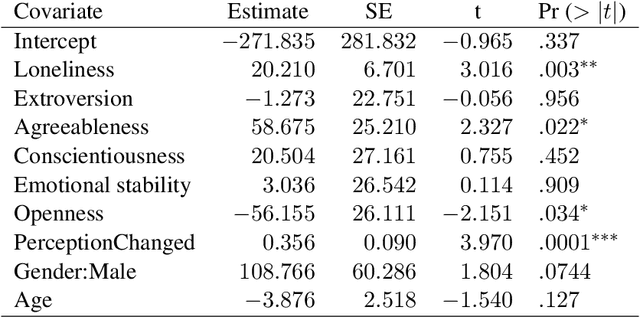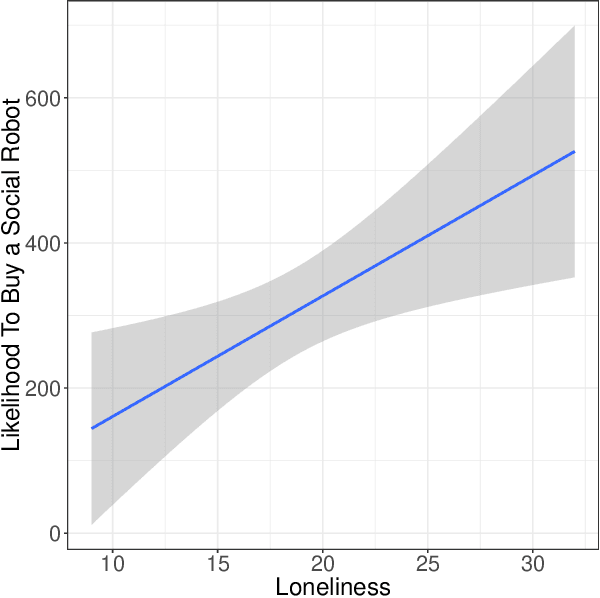Social Companion Robots to Reduce Isolation: A Perception Change Due to COVID-19
Paper and Code
Aug 12, 2020


Social isolation is one of the negative consequences of a pandemic like COVID-19. Being socially isolated and the experience of loneliness is not only experienced by older adults, but also by younger people who live alone and cannot communicate with others or get involved in social situations as they used to. In the absence of `face-to-face' contact with a human companion, there is a potential for robotic companions to reduce loneliness. Here, we present results from an online study showing that a change caused by COVID-19 has affected people's perception of social robots, as companions, and that the feeling of loneliness can drive the purchase of a social robot.
 Add to Chrome
Add to Chrome Add to Firefox
Add to Firefox Add to Edge
Add to Edge